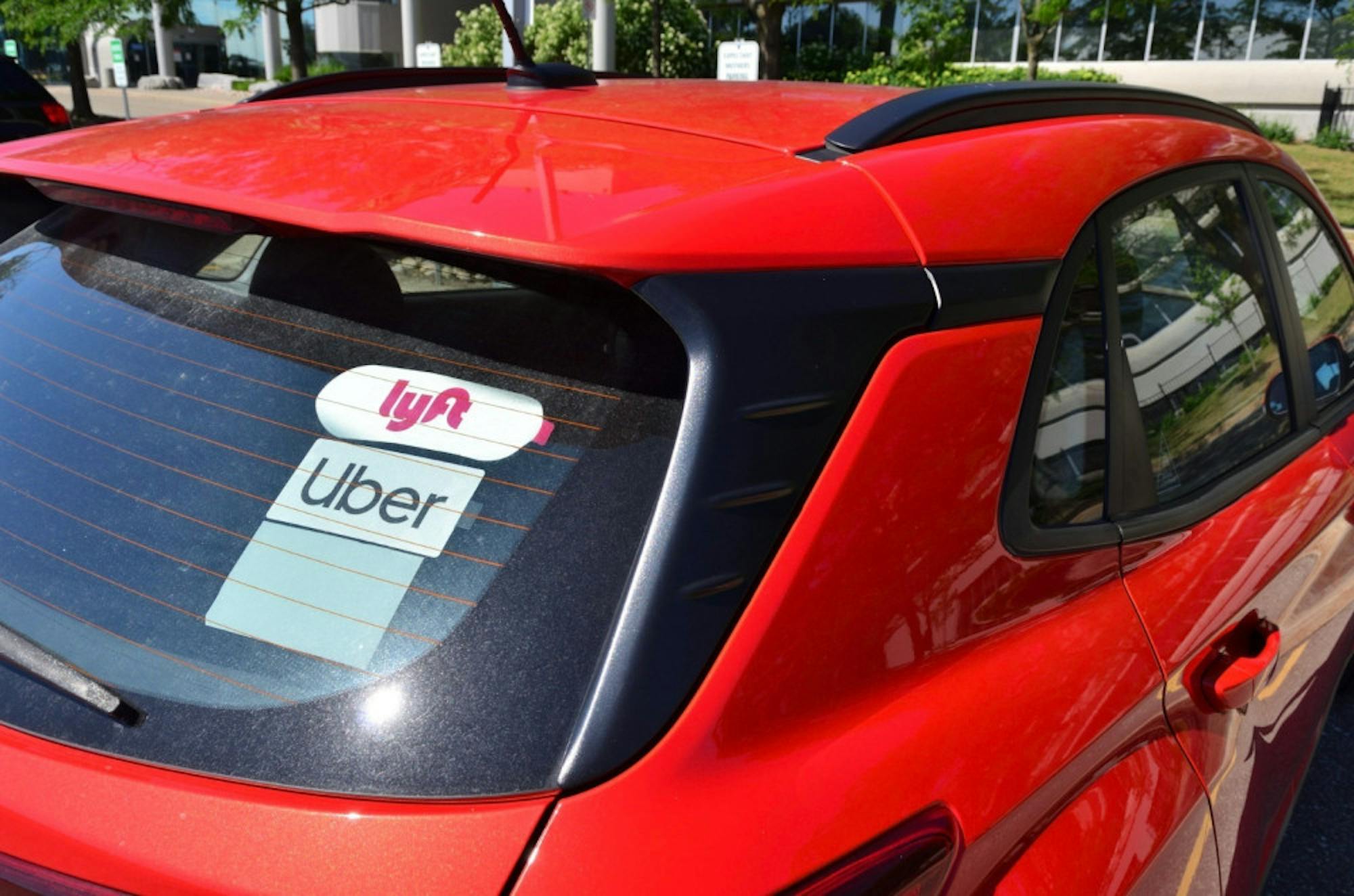Voters in Massachusetts may see a ballot question about the employment and benefit status of gig drivers during this November’s elections. Senator Elizabeth Warren and a coalition of labor groups have vehemently opposed the ballot question, while rideshare companies like Uber, Lyft, Doordash and Instacart have backed the initiative. There is a possibility that the state legislature intervenes before then, eliminating the need for a ballot question.
If passed, the ballot initiative would declare app-based drivers — ones who work for companies like DoorDash, Uber and Lyft —to be independent contractors as opposed to employees. It would also create minimal protections for this new class of independent contractors, including a new standard for minimum pay, the possibility of a health insurance stipend and reimbursement for miles driven.
Leila Skinner is an organizing intern with Massachusetts Is Not for Sale, an organization fighting the ballot question and endorsed by Senator Elizabeth Warren and Congresswoman Ayanna Pressley. Skinner works with the organization’s coalition of labor unions, civil rights groups and environment groups to help spread the word about the ballot question and organize alongside them.
“Money follows corporations,”Skinner, a senior, wrote in an email to the Daily. “At the end of the day, Uber and Lyft's motivations are for their CEOS to increase their profits at the expense of workers’ rights.”
Flexibility and Benefits for Massachusetts Drivers, a committee supporting petitions for the ballot initiative, received $14.4 million in donations from Lyft. Solomon, McCown & Cence is one of a few well-known political consultanting firms in Massachusetts on the committee’s payroll.
Conor Yunits, spokesperson for Flexibility and Benefits for Massachusetts Drivers and senior vice president for Solomon, McCown & Cence, saidFlexibility and Benefits for Massachusetts is working to amplify the voices of drivers on this issue through sharing their stories with legislators, the media and voters.
“Drivers in Massachusetts support this ballot question by a margin of 8:1 because it protects the flexibility and independence that are most important to them, while also delivering new benefits like paid sick time, paid family & medical leave, health care stipends, protection against discrimination, occupational accident insurance, and a minimum earnings guarantee of $18 per hour,”Yunits wrote in an email to the Daily. “That’s what drivers want.”
Evan Horowitz, executive director of the Center for State Policy Analysis at Tisch College of Civic Life, is currently putting together an analysis of the ballot initiative meant to inform voters about the question and provide legislators with accurate information to inform their opinions.
Horowitz said that while it is important to consider how current workers in an industry feel, surveys that report the drivers are happy with their status as independent contractors are not entirely representative.
“You’re asking people who have chosen to be in this industry whether they’re happy about being in this industry, and of course they say yes, because if they weren’t, they wouldn’t be there,” Horowitz said.“If you ask a bunch of skydivers whether skydiving is scary, lots of them will say no, they don’t find it scary. But of course, the people who choose to be skydivers are not particularly afraid of skydiving.”
Skinner is coordinating with the Tufts Labor Coalition as part of a larger strategy to harness the energy on college campuses to vote against the ballot initiative.
“If you’re a Tufts student or a person who claims to stand for racial justice or workers’ rights, you’ll stand against Uber and Lyft’s Loophole Bill,” Skinner wrote. “Let’s not forget when it’s 2AM and you’re ubering back from Boston that your driver may have a family at home and deserves the same worker protections and livable wage that every other person in Massachusetts is guaranteed.”
As November approaches, the state legislature can intervene by creating a law establishing the status of these gig workers, superseding the need for voters to make a decision on the ballot. Horowitz discussed this possibility.
“My sense in this case is that it is not particularly likely, but it is not impossible,” Horowitz said of the possibility of the legislature intervening.
The current language of the initiative guarantees minimum pay of 120% of the minimum wage for time spent driving.Horowitz said the legislature could theoretically alter that to potentially satisfy opponents.They could also revise the language around the health care stipend. But, Horowitz said, they could also say gig workers are employees and should be classified as such, strengthening the law.
“We continue to pursue a legislative solution and remain confident that our legislative leaders can come together at the State House and agree on a modern legislative framework that protects the flexibility that gig economy workers overwhelmingly prefer, while also establishing new benefits and protections,” Yunits wrote.
Horowitz said that interest groups often pursue their issue through ballot question initiatives rather than in the legislature because they believe they will have a better chance of getting the outcome they prefer, which often relies on which group has the most money to push for their issue.
Horowitz added that this ballot initiative could be the beginning of an ongoing policy battle to examine the status of workers, industry by industry.
“The universe of gig workers is way bigger than just drivers right now. … You can find people to walk your dog through an app or even find medical care and therapy through an app. … There are lots and lots of … app-based fields.”Horowitz said.“So the ballot question isn’t going to resolve the full landscape of those jobs and, in some ways, that needs to be resolved.”






